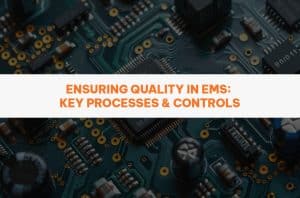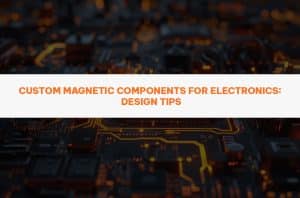As electronics become smaller and more sophisticated, the demand for perfect soldering becomes imperative. Conventional reflow soldering techniques, while sound, frequently have difficulty with non-uniform heating, oxidation, and thermal stress — complications that can be detrimental to quality and reliability. Vapor Phase Soldering (VPS) provides a smarter, more accurate solution, providing consistent results and minimizing the risk of defects.
What Is Vapor Phase Soldering?
Vapor Phase Soldering is a controlled process based on the condensation of hot, inert vapor to conduct heat into electronic assemblies. Within an enclosed chamber, a heat transfer fluid (usually a perfluoropolyether compound) is boiled to create vapor. Upon introduction of a colder PCB into the chamber, the vapor condenses on the board’s surface, dissolving heat evenly over the entire board
When the solder melts, condensation ceases — avoiding overheating. This regulation is automatic, guaranteeing each solder joint attains optimal temperature control irrespective of component size or placement.
This makes Vapor Phase Soldering Services in India a preferred solution for precision-driven industries that rely on Surface Mount Technology Services in India.
- Uniform Heating – Heat is transferred uniformly by vapor, removing cold spots and temperature gradients.
- No Overheating – Natural restriction in temperature increase prevents damage to sensitive parts.
- Oxidation-Free Environment – The inert vapor ensures oxidation-free conditions, creating cleaner solder joints.
- Stronger, More Reliable Joints – Uniform temperature control enhances solder wetting and bonding.
- Energy Efficient – Heat transfer by condensation is energy-efficient, lowering energy consumption.
These advantages make VPS particularly important for sectors where performance and reliability can’t be sacrificed — like aerospace, automotive, medical and telecommunications. As one of the trusted EMS Companies in India, Roots EMS uses Vapor Phase Soldering Services to ensure world-class quality standards in every PCB assembly.
VPS vs. Traditional Reflow Soldering
|
Aspect |
Vapor Phase Soldering |
Traditional Reflow |
|---|---|---|
|
Heating Method |
Condensation of vapor |
Hot air or infrared radiation |
|
Temperature Uniformity |
Excellent |
Inconsistent on large or dense boards |
|
Oxidation Risk |
None |
Possible, even in nitrogen |
|
Component Stress |
Low |
High due to uneven heating |
- Automotive electronics – ECUs, sensors, and lighting modules under heat and vibration.
- Aerospace and defense – Subsystems that have to withstand extreme conditions and altitude fluctuations.
- Medical devices – High-precision diagnostic and implantable parts.
- Industrial and power systems – Boards that need strong, void-free joints.
Its capability to manage close thermal margins makes it especially ideal for mixed component size assemblies or multilayer boards. This superior control is why many PCB Assembly Companies and Electronics Contract Manufacturers are adopting Vapor Phase Soldering Services in India.
Challenges to Consider
A Glimpse Ahead
Precision soldering’s future is directed towards more intelligent, cleaner, and controlled processes. New VPS machines today have vacuum-assisted void evacuation, automatic profiling, and energy recovery technologies, which make them more efficient and environmentally friendly.
With shrinking PCB designs and increasing complexity, Vapor Phase Soldering’s combination of precision, repeatability, and thermal safety puts it at the forefront of next-generation manufacturing technology.
Conclusion
Vapor Phase Soldering is not some new process — it’s an innovation in PCB assembly accuracy. By integrating self-regulating heat control, oxidation-free environment, and ideal temperature uniformity, it guarantees all solder joints achieve the highest reliability levels. To manufacturers that care about quality, efficiency, and long-term performance, VPS really is the smarter way to solder. At Roots EMS, we combine Surface Mount Technology Services in India, Conformal Coating Services in India, and Vapor Phase Soldering Services to deliver the most dependable Electronics Manufacturing Services to our clients across sectors.
FAQ
What is Vapor Phase Soldering?
Vapor Phase Soldering (VPS) is a process that uses hot vapor (usually a perfluoropolyether compound) to evenly heat and solder PCBs, ensuring precise temperature control and defect-free joints.
Why is Vapor Phase Soldering better than reflow soldering?
VPS offers uniform heating, prevents oxidation, and reduces stress on components — making it more reliable than traditional reflow soldering.
Which industries use Vapor Phase Soldering Services in India?
Industries like aerospace, automotive, medical, and industrial electronics use Vapor Phase Soldering Services for high-quality PCB assemblies.
Is Vapor Phase Soldering suitable for all PCB types?
Yes, VPS is ideal for all PCB types, especially multilayer and heat-sensitive boards requiring consistent soldering results.
Why choose Roots EMS for Vapor Phase Soldering Services?
Roots EMS offers advanced Vapor Phase Soldering Services in India with high precision, reliability, and quality across every PCB assembly.


